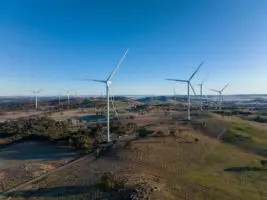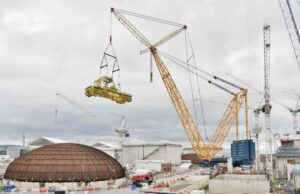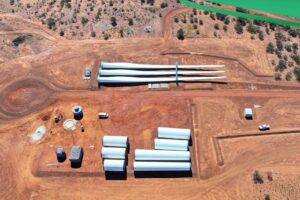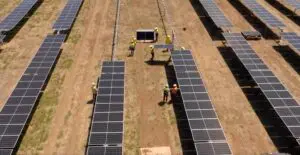“The window of opportunity is very slowly closing down on us.” So said Sandea de Wet, chair at the latest round of international climate change talks, as they drew to a close on Friday. Not that her warning did much good. As a Guardian report notes, the Bonn talks ended in discord and disappointment, “with some participants concerned that important progress made last year was being unpicked.” The conference was supposed to set out a work plan on negotiations that should result in a new global climate treaty, to be drafted by the end of 2015 and come into force in 2020. But as we noted on Friday, the process got bogged down in such detail as setting an agenda, and who should chair the new process; while the decision to work on a new treaty – reached after marathon late-running talks last December in Durban – was being questioned, rather than strengthened.
“In Durban everyone agreed that something needed to be done but the hard point was the detail and there has been no resolution of the detail,” said Institute of Public Affairs spokesman Tim Wilson. “If this is the outcome at Bonn it bodes very poorly for any substantive outcome at Qatar later this year for the detail of a second Kyoto commitment period which will cascade into problems for the Durban platform and a post-Kyoto agreement as well.”
The latest major dispute holding back progress is over the leadership of a group known as the ADP – short for ad-hoc talks on the “Durban Platform.” As the Times reports, the ADP is supposed to lead the process agreed upon in South Africa last December, to draft a new pact binding all nations, instead of just the developed nations, as has previously been the case. China and its allies want India to chair the ADP, on the grounds that it is the Asia-Pacific bloc’s turn to steer a subsidiary body under the UNFCCC. Other possible candidates are Norway and the Caribbean state of Trinidad and Tobago.
As the talks drew to a close, EU negotiators accused China of slowing progress. China hit back, claiming the US, Europe and other rich states were to blame, and that they were trying to wriggle out of legal targets to curb global warming. “They try to evade the legally binding commitments,” Chinese chief negotiator Su Wei said, pointing the finger at the US, Europe, Japan, Canada, Australia and New Zealand as among those who he said were using the Durban platform to try to “jump from the legally binding system.” In Durban, Australia said it would not commit to extending the legally binding Kyoto agreement in the absence of an agreement that included the world’s biggest emitter, the US, as well as China and India.
The Guardian reports that there was also little progress made on the key issue of the development of a ‘Green Climate Fund,’ to channel cash from the developed world to poorer countries, to help them cut emissions and mitigate the effects of climate change. There was, however, some success with the detail needed to extend the Kyoto protocol beyond 2012, when its current provisions expire. That extension should be finalised at a conference in Doha, Qatar, this November – but may not be if the EU does not see sufficient progress in negotiations on the proposed new post-2020 treaty.
Market hedges bets on carbon
The energy market is becoming increasingly despondent about the prospect of a carbon price surviving much after the next election. AGL Energy managing director Michael Fraser noted last week that forward trading on the National Electricity Market was pricing a carbon price in 2013, but beyond that traders and utilities were hedging their bets, with the forward curve suggesting only a 50 per cent uplift in the anticipated carbon price.
Some analysts are even more pessimistic. Credit Suisse analysts Sandra McCullagh and Benjamin McVicar said in a report last week that the market is factoring in the probability of a carbon tax being abolished in 2014, after the anticipated election of an Abbott government. Even though an Abbott government would find it difficult to rescind the policy before April, 2014, according to most analyses, there is a growing view that the poll due towards the end of 2013 could prove divisive and deliver a coalition government an effective majority in both houses.
Renewables survey says…
A global survey conducted by KPMG suggests private equity and infrastructure funds are preparing to kick-start an increase in deal activity in the renewable energy sector over the next 18 months, but Australia is at risk of missing out. The survey found that PE and infrastructure funds are set to displace independent power producers as the major deal makers in the renewable energy industry, which is expected to prosper despite the broader downturn in global debt finance. Hydro, onshore wind and solar PV investments, in particular, were seen as safe havens for long-term money and the green energy globally is becoming viewed by some investors in much the same way as conventional infrastructure asset classes, like water companies and electricity grids
“This is good news as it means renewables are seen as safe and stable, hence the return required by investors is reduced and overall renewables becomes better value for money for energy consumers as they require fewer subsidies,” said KPMG Australia’s National Leader of Renewables, Mathew Herring. But he said the Australian industry needs to develop quickly so we can become a leader throughout Asia and globally. He warned that the positive sentiment of investors could be badly affected by regulatory uncertainty, particularly around state based schemes.








